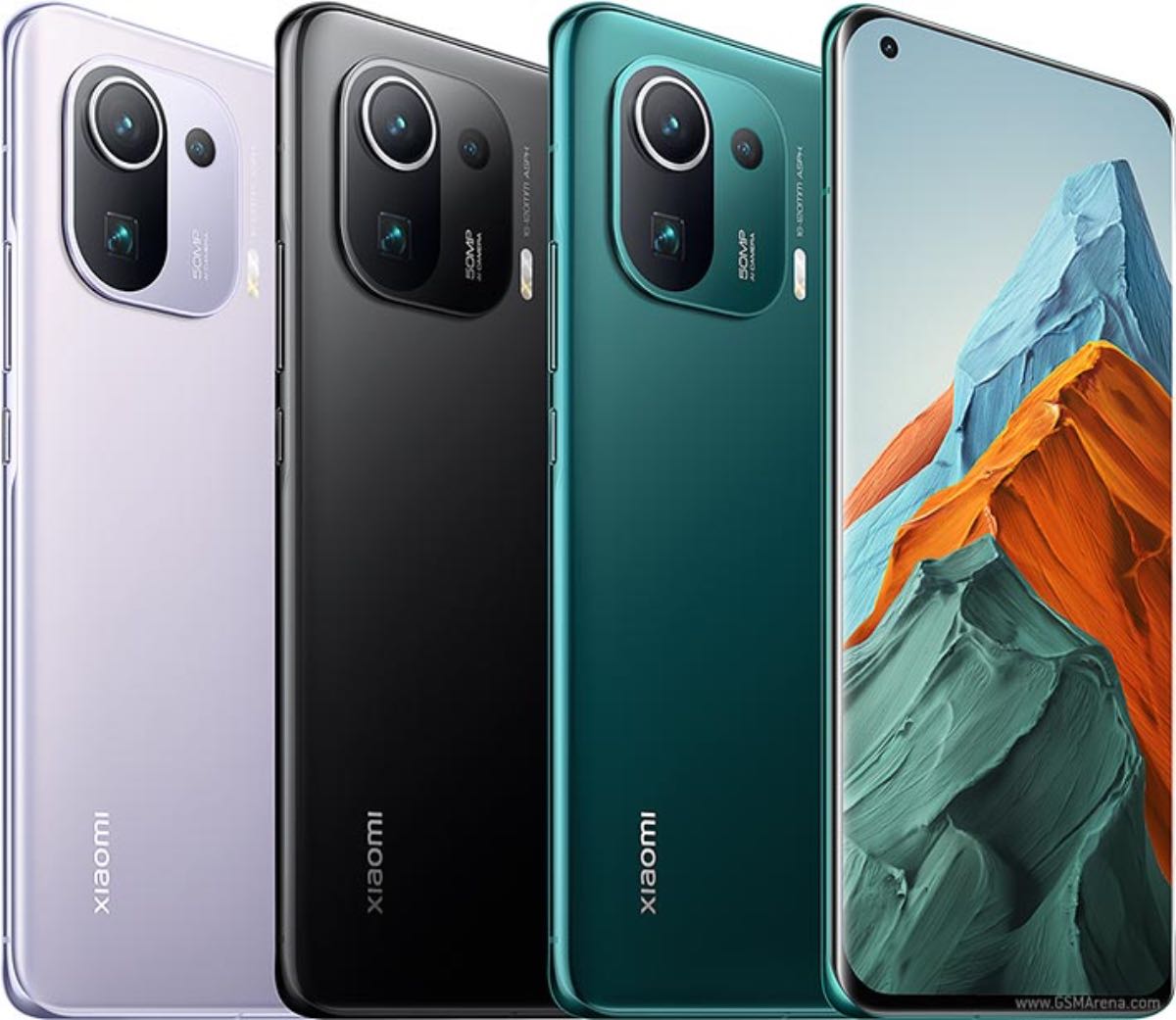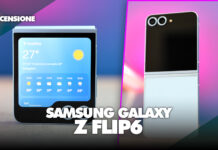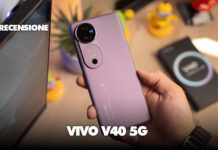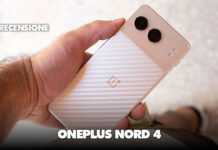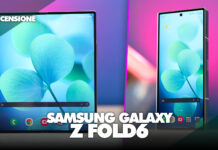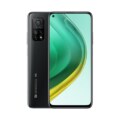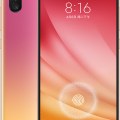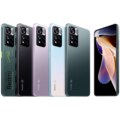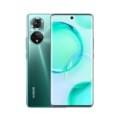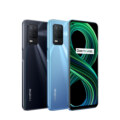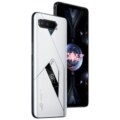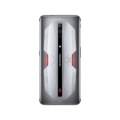- GizChina.it – Il tuo orizzonte Tech
- Scheda tecnica
- Smartphone
- Xiaomi Mi 11 Pro
Xiaomi Mi 11 Pro
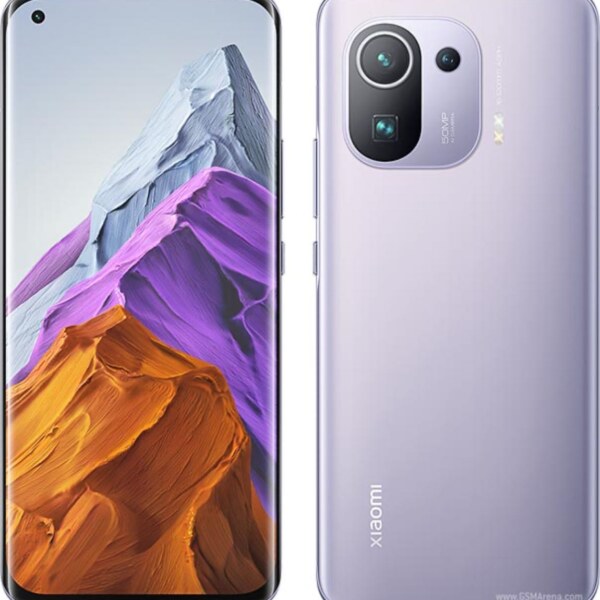
-
CPU: Snapdragon 888
-
RAM: 8/12 GB
-
Storage: 128/256 GB
-
Display: 6.81" Quad HD+ 120 Hz
-
Camera: 50 + 13 + 8 MP
Specifiche
Disponibilità
| Data di lancio | 29 Marzo 2021 |
Design
| Dimensioni | 164.3 x 74.6 x 8.5 mm |
| Peso | 208 g |
| Colori | Black, Purple, Green |
| Certificazione IP | IP68 |
Display
| Tipo Display Technology => A number of display technologies and types used in mobile phones => TFT (Thin Film Transistor), IPS (In-Place Switching), OLED (Organic Light Emitting Diode), AMOLED (Active-Matrix Organic Light-Emitting Diode), Super AMOLED (an even advanced version of AMOLED), Resistive Touchscreen (Resistive touchscreens contain two layer of conductive material with a very small gap between them which acts as a resistance), Capacitive Touchsceen (Capacitive touchscreen technology consists of a layer of glass coated with a transparent conductor) | AMOLED |
| Pannello | Quad Curved |
| Diagonale | 6.81" |
| Risoluzione | Quad HD+ (3200 x 1440 pixel) |
| Densità Pixel Pixel Density (PPI) is refers to the concentration of pixels on a particular display, measured in pixels per inch (ppi). Pixel density is calculated by dividing the diagonal pixel resolution of a display by its diagonal size, higher pixel density better display quality. | 515 PPI |
| Aspect ratio | 20:9 |
| Screen-to-body ratio | 91.4% |
| Refresh rate | 120 Hz |
| Campionamento del tocco | 480 Hz |
| Protezione Display Protection => Gorilla Glass is a special alkali-aluminosilicate glass shield with exceptional damage resistance that helps protect mobile displays from scratches, drops, and bumps of everyday use, It is always better to go for a smartphone with Gorilla Glass for that added protection and peace of mind. | Gorilla Glass Victus |
| HDR |
Sblocco biometrico
| Lettore d'impronte | Nel display (ottico) |
| Riconoscimento facciale | 2D |
Hardware
| Produttore Chipset Chipset is a group of integrated circuits designed to perform one or a more dedicated functions, often with real time computing constraints, Popular smartphones are equipped with more advanced embedded chipsets that can do many different tasks depending on their programming. | Qualcomm |
| SoC | Snapdragon 888 |
| Processo produttivo | 5 nm |
| CPU | Octa-core |
| Frequenza | 1 x 2.84, 3 x 2.42, 4 x 1.80 GHz |
| Architettura | Kryo 680 |
| GPU GPU (Graphics Processing Unit) is a single-chip processor designed to rapidly manipulate and alter memory to accelerate the creation of images in a frame buffer intended for output to a display, This includes things such as lighting effects, object transformations, and 3D motion. | Adreno 660 |
| RAM RAM (Random Access Memory) is a type of computer memory that can be accessed randomly, any byte of memory can be accessed without touching the preceding bytes that allows information to be stored and accessed quickly from random locations. RAM is the most common type of memory found in computer systems, smartphones, tablets and other electronic devices. | 8/12 GB LPDDR5 |
| Memoria | 128/256 GB UFS 3.1 |
| Espandibilità | |
| Raffreddamento | Liquido |
| Vibrazione | Asse-X |
Software
| Sistema Operativo OS => Every computer system run on a base software called Operating System (OS). Operating System controls all basic operations of the computer (such as smartphone, PDAs, tablet computers and other handheld devices). The Operating System allows the user to install and run third party applications (apps), apps are used to add new functionality to the device. | Android 11 |
| Interfaccia Utente UI or user interface of a device is the look and feel of the on-screen menu system. How it works, its color scheme, how it responds to button presses, all of these things are part of the user interface. | MIUI 12 |
Batteria
| Capacità Battery Capacity is a measure (typically in Amp-hr) of the charge stored by the battery, and is determined by the mass of active material contained in the battery. The battery capacity represents the maximum amount of energy that can be extracted from the battery under certain conditions. | 5.000 mAh |
| Ricarica rapida | 67W |
| Ricarica wireless | 67W |
| Ricarica wireless inversa |
Connettività
| Bluetooth Bluetooth is a wireless communications technology for exchanging data between mobile phones, headsets, computers and other network devices over short distances without wires, Bluetooth technology was primarily designed to support simple wireless networking of personal consumer devices. | 5.2 |
| Wi-Fi Wi-Fi is a popular wireless networking technology using radio waves to provide high-speed network connections that allows devices to communicate without cords or cables, Wi-Fi is increasingly becoming the preferred mode of internet connectivity all over the world. | Wi-Fi 6E |
| GPS | A-GPS, GLONASS, BDS, GALILEO, QZSS, NavIC |
| GPS Doppia Frequenza | |
| NFC NFC (Near field communication) is a set of standards for smartphones and similar devices to establish peer-to-peer radio communications with each other by touching them together or bringing them into proximity, usually no more than a few inches. | |
| USB | Type-C |
| Uscita Video HDMI (High-Definition Multimedia Interface) is a compact audio/video interface for transferring uncompressed video data and compressed or uncompressed digital audio data from a HDMI-compliant source device to a compatible computer monitor, video projector, digital television, or digital audio device. | |
| Radio FM | |
| Infrarossi Infrared connectivity is an old wireless technology used to connect two electronic devices. It uses a beam of infrared light to transmit information and so requires direct line of sight and operates only at close range. | |
| Bande 2G |
GSM: B2 / B3 / B5 / B8 CDMA 1x: BC0 |
| Bande 3G | WCDMA: B1 / B2 / B4 / B5 / B6 / B8 / B19 CDMA EVDO: BC0 |
| Bande 4G |
FDD-LTE: B1 / B2 / B3 / B4 / B5 / B7 / B8 / B12 / B17 / B18 / B19 / B20 / B26 / B28 TDD-LTE: B34 / B38 / B39 / B40 / B41 / B42 |
| Bande 5G | n1 / n3 / n28 / n41 / n77 / n78 / n79 |
Audio
| Speaker | Stereo (frame superiore e inferiore) |
| Mini-jack |
Fotocamera
| Primario | 50 MP, f/1.95, 1/1.12", 1.4 µm, Dual Pixel PDAF |
| Sensore | S5KGN2 |
| Stabilizzazione | OIS |
| Teleobiettivo | 8 MP, f/2.4, OIS |
| Zoom | 5x (ottico), 50x (digitale) |
| Grandangolare | 13 MP, f/2.4 |
| FoV | 123° |
| ToF | |
| Autofocus | PDAF |
| Video | 8K 24fps, 4K 30/60fps, 1080p 30/60fps |
| Selfie camera | 20 MP, 1/3.4", 0.8µm |
| Sensore frontale | Samsung S5K3T2 |
| Tipologia | Punch-hole |
Xiaomi Mi 11 Pro è il top di gamma 5G di fine marzo 2021 del produttore, con una scheda tecnica basata sul SoC Qualcomm Snapdragon 888. Misura 164.3 x 74.6 x 8.53 mm, pesa 208 g ed è disponibile nelle colorazioni Black, Purple e Green. Integra un display AMOLED da 6,81″ WQHD+, refresh rate a 120 Hz e campionamento del tocco a 480 Hz. Lo sblocco biometrico avviene tramite sensore ID ottico nel display, con la funzionalità inedita di poter misurare il battito cardiaco, oltre al riconoscimento facciale 2D.
Il chipset Qualcomm contiene una CPU octa-core Kryo 680 (1 x 2.84 GHz + 3 x 2.42 GHz + 4 x 1.80 GHz) ed una GPU Adreno 660. Lato memorie abbiamo tagli da 8/12 GB RAM LPDDR5 e 128/256 GB UFS 3.1 e c’è una batteria da 5.000 mAh con ricarica rapida e wireless da 67W e inversa 10W. Il sistema operativo è Android 11 con interfaccia proprietaria MIUI 12.
Il comparto fotografico comprende una tripla fotocamera posteriore da 108+13+8 MP f/1.95-2.4-2.4, con sensore grandangolare da 123° ed un teleobiettivo. Sul davanti c’è una selfie camera punch-hole con sensore da 20 MP. La scheda tecnica di Xiaomi Mi 11 Pro comprende uno speaker stereo simmetrico co-ingegnerizzato con Harman/Kardon.
Xiaomi Mi 11 Pro – Foto
